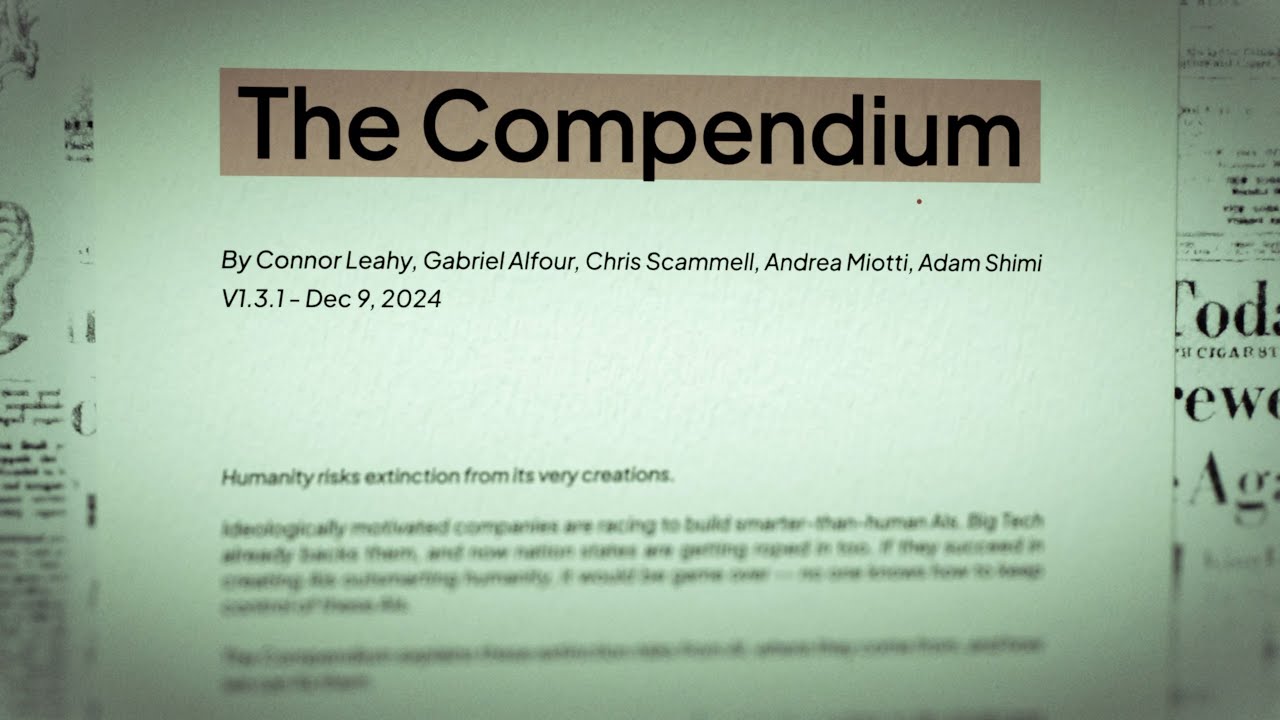The video emphasizes the urgent need for a coordinated effort, likened to a “Manhattan Project,” to address the existential risks posed by artificial superintelligence (ASI) and advocates for a focus on safety and alignment in AI development. It introduces Tofu Labs, a new initiative aimed at tackling these challenges, while critiquing the current AI community’s tendency to prioritize rapid advancement over safety and calling for comprehensive governance and collective action to ensure AI technologies align with human values.
The video discusses the urgent need for a coordinated effort to address the potential existential risks posed by artificial superintelligence (ASI). The speakers emphasize that current advancements in AI are primarily driven by scaling existing models rather than a deep understanding of intelligence itself. They argue that the lack of focus on safety and alignment in AI development is dangerous, and that without a concerted effort akin to a “Manhattan Project” for AI safety, humanity risks losing control over increasingly powerful AI systems. The conversation highlights the importance of understanding intelligence, coordination, and alignment as critical issues for the long-term well-being of humanity.
The speakers introduce Tofu Labs, a new AI research initiative aimed at addressing these challenges. They express the need for talented individuals, such as chief scientists and research engineers, to join their efforts in AI research, particularly focusing on large language models and other advanced AI systems. They also reference a comprehensive document called “The Compendium,” which outlines the risks of extinction from superintelligence and the need for proactive measures to mitigate these risks. The discussion underscores the importance of scientific rigor and humility in understanding intelligence and the limitations of current AI systems.
Throughout the conversation, the speakers critique the prevailing attitudes within the AI community, particularly the tendency to prioritize rapid development over safety. They argue that many researchers and organizations acknowledge the risks but continue to race ahead without adequate safeguards. The speakers emphasize that understanding the complexities of intelligence and the potential consequences of AI systems is essential for developing effective governance and regulatory frameworks. They advocate for a more cautious approach that prioritizes safety and ethical considerations in AI development.
The discussion also touches on the challenges of aligning AI systems with human values and the difficulties of creating robust governance structures. The speakers highlight the need for clear rules and regulations that can guide the development of AI technologies while ensuring that they remain aligned with human interests. They argue that current approaches to alignment are insufficient and that a more comprehensive understanding of governance, public choice theory, and complex systems is necessary to address these challenges effectively.
Finally, the speakers express optimism about the potential for grassroots movements and collective action to influence policy and regulation around AI. They share their experiences in engaging with politicians and advocating for measures to mitigate existential risks. The conversation concludes with a call to action for individuals and organizations to leverage existing institutions and knowledge to create a safer future for humanity in the face of advancing AI technologies. The speakers believe that by working together and focusing on shared goals, it is possible to navigate the complexities of AI development and ensure a positive outcome for society.
